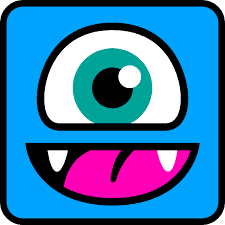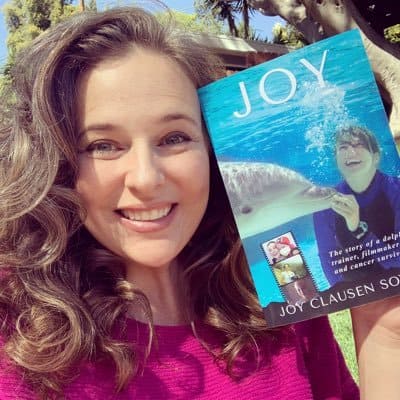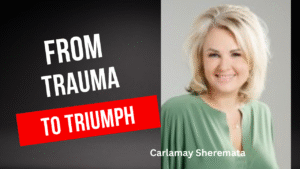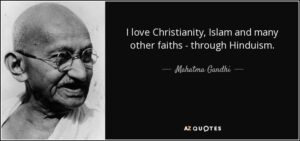It was the first time since I started coughing, I put my hand on my throat, and I felt a lump. Shortly after that, I was diagnosed with, throat cancer. It was stage two, non-Hodgkin’s lymphoma. I remember asking the doctor what happens if I don’t get, chemotherapy, and she said you’ll be dead within the year. I really didn’t have any choice, it was an aggressive form of, cancer, and I needed to just stick it out and battle it with the chemotherapy.
I came up with the idea of making a documentary of my, cancer, journey because that way I could still learn about filmmaking and I wanted to show a story of, survival, because when I turn to the movies, I don’t see any, cancer survivor, stories only stories of, cancer, patients who passed away. I knew that there were millions of, cancer survivors, out there and I wanted to show a story of, survival.
My guest today is Joy Claussen Soto. Joy is a, cancer survivor, filmmaker and author. Today, we are going to be talking on the topic “How to find your, purpose, after cancer or after a major illness?
Myrna: Can you share your journey as a, dolphin trainer, and how that specifically helps you overcome, cancer, because I know that you’re tying them together somehow.
Listen to the full interview here:
My Journey as a Dolphin Trainer
Joy: Well my journey as a, dolphin trainer, started a long time ago when I was in college. For me, the really important part was when I applied to get a job at SeaWorld. I tried a number of times to get a job at Sea World, but it never worked out because they just weren’t hiring people. Fortunately, I happened to call at the right time and they asked me to take a, swim test. I was in Chicago at the time, so I had to fly out to San Diego and I had one day to take this test. I went down to a pool to practice the, swim test, which was holding your breath for 120 seconds underwater, touching the bottom which is 26 feet deep and some other things.
Those were the biggest challenges that I was having trouble with. So I went down to the pool to started practicing. I would hold my breath and then come up maybe a quarter of the way. I couldn’t even get half the way through the pool without needing to come up for oxygen and when I dived down in a pool that’s six feet deep my ears start to hurt. But, for some reason I still got on that plane and went to San Diego to do this, swim test, at Sea World. I knew that I hadn’t practiced physically, but I remembered reading about athletes and how they used their minds to visualize the ball going through the hoop, and gymnasts who visualize themselves doing all their moves. Those were my thoughts as I was on the plane. I started visualizing everything. I visualized myself swimming through the water, wanting to give up and not giving up, and making it to the other side and also same thing with diving down.
Sponsored Ad
In the book “Ruthless Pamela Jean” Author Denise Mitchell’s introduces us to young Pamela Jean Metcalf. She is a kid that was abused her whole life because of the color of her pale, light, skin. At age eight, when her own mother failed to stop the bullying, young Pamela took control. In a tunnel, the 16-year-old fights back. Later, Pamela Jean begins a very successful Escort service to finance an initiative against child-bullying. The story of running an Escort Service will have readers laughing out loud. It’s truly a book all will enjoy!
Pick up a copy of “Ruthless Pamela Jean” on Amazon and be inspired about Pamela Jean story of survival of childhood abuses. Congratulations on hitting #1 on Kindle unlimited.
https://www.amazon.com/Ruthless-Pamela-Carol-Denise-Mitchell-ebook/dp/B08DDHWJ4X
Visualizing Dolphin trainer swim test
I practiced holding my breath the whole time on the airplane. I probably looked like a crazy person. I had my watch out and started practicing that, visualization, also helped me, beat cancer. I went there to Sea World took the, swim test, and miraculously, I got in the water and I passed the test. I was so happy that I had done it, I didn’t even care if I got the job because I was just so proud of myself that I put myself out there and I did something that I physically couldn’t do just 24 hours before.
When it comes to, cancer, I’d seen how powerful, visualization, was. I would use that when I was sick, because I think one of the things when you are going through something like that is that you feel a loss of control. We all know that a loss of control can lead to, depression. When I was going through, cancer, I couldn’t have control over what the, Chemotherapy, was doing to my body. I didn’t have control over what the doctors were doing, but I did have control over my mind.

Visualization to Beat Cancer
I visualized, Chemotherapy, killing the, cancer, eating the, cancer, and make these little things in my mind to help it along. So, that helped me. Even though, it may not have been real control, but perceived control, I was using that as one of the ways I was able to gain back control. That was one thing that helped me from my job as a, dolphin trainer.
Myrna: Visualization, is powerful. I always reference back to Christopher Reeves, when anybody’s talking about, visualization, as a part of healing. Christopher Reeves book called “Nothing is Impossible” talks about how he used, visualization, to heal his body when he was paralyzed from the neck down and all he could do is blow into a straw to speak. That was powerful stuff and I never forgot it. Visualization, helped him start walking and speaking. He did it by sitting on his porch every single day and, visualizing, his body healing and that’s my base. A lot of people have done that since then but visualization is big. Can you bridge the gap in a bit for us about your cancer story?
Joy: Even though my passion was working with dolphins, I also wanted to become a filmmaker. So, I quit my job at SeaWorld and enrolled in Film School. I was in film school for three months and that was when I found the lump in my throat. I had been coughing, the cough was getting worse instead of better and I felt really tired.

Being diagnosed with Throat Cancer
It was the first time since I started coughing, I put my hand on my throat, and I felt a lump. Shortly after that, I was diagnosed with, throat cancer. It was stage two, Non-Hodgkin’s lymphoma. I remember asking the doctor what happens if I don’t get, chemotherapy, and she said you’ll be dead within the year. I really didn’t have any choice, it was an aggressive form of, cancer, and I needed to just stick it out and battle it with the, chemotherapy.
I came up with the idea of making a documentary of my, cancer, journey because that way I could still learn about filmmaking and I wanted to show a story of, survival, because when I turn to the movies, I don’t see any, cancer survivor, stories only stories of, cancer, patients who passed away. I knew that there were millions of, cancer survivors, out there and I wanted to show is a story of, survival.
Myrna: What it sounds like is that, at no point in time you thought you’re going to die, because you wanted to show a story of, survival, that’s faith. Where did you get that faith?

Faith and survival
Joy: I’ve always had a belief in God, and my dad taught me about, faith. I remember we had a lot of my relatives pass away in a short period of time when I was little. I remember sitting on the chair with my dad in our house, he explained to me what death was.
He said some people are here for a certain reason – to help other people learn lessons and to learn lessons themselves. That can mean just being here for a couple of minutes or it can mean an entire lifetime. So, I just kind of took that as my understanding of, purpose, and I’ve used that throughout my life. Well, I’m here to learn lessons, but I don’t know what those lessons are. Hopefully, I’m learning them right now and I’m here to help teach other people lessons. So, that has helped me get through, cancer treatments.
Myrna: Regardless of how you believe and how much, faith, you have when you heard that, cancer, diagnosis, fear had to creep in.
Fear and Zig Zigler
Joy: Absolutely. I was in a battle with myself and, fear. I have footage in my documentary of me talking to the camera at my lowest point when I let, fear, in. What really helped me, was I had listened to a Zig Ziglar motivational tape. There was one story of him being stuck in an Airport, his flight was canceled, but instead of him being angry or upset like most people would have, he just said fantastic. He came up with all the reasons why it was good that his flight wasn’t taking off:
- Maybe there’s something wrong with that plane
- something wrong with the people flying that plane
- the weather was bad and could crash the plane.

If that’s the case, he said “I don’t want to be up there, I want to be right down here, fantastic.” That was powerful for me, because it showed me that we have control over how we either respond or react to things. I had a moment when I remembered that life is indeed fantastic! I started thinking of all things I was grateful for:
- I was grateful for my friends and family and all the love I was receiving
- Grateful that they found my, throat cancer, at stage two
- Incredibly grateful that they found my, cancer, period and they can treat it.
- I started flipping it instead of going, I was diagnosed with cancer and it’s horrible, I started flipping it to get to fantastic. It helped me to get through it better and become a, cancer survivor.

An Attitude of Gratitude
Myrna: That’s awesome. This is good stuff, they say. Another quote is I like is:
It’s not what happens to you, but how you respond to what happened to you.
An, attitude of gratitude, is a powerful treatment for, cancer. Now, how did you learn to control the, uncontrollable? You said you were able to control the elements in an, uncontrollable, situation. You just said a minute ago that your, visualization, of the, chemotherapy, that you had to do, is an, uncontrollable, situation. What are some of the other things or some of the other elements that you use in this, uncontrollable, situation to control?
Joy: The whole time that I was sick, I had this visual of me surviving and making a, story of survival. I think that was very powerful and that helped me in taking back control of my life. The, attitude of gratitude, my notebook and the documentary, those were ways I was able to grab back some control when I was going through an, uncontrollable, situation.

Making a Survival Story documentary
In my, cancer survival, documentary, I filmed all the details of my very bad moments with, cancer, when things weren’t going well. At one point, I was rushed to the hospital in the middle of the night. I was on a bench for a short period of time. I was very weak. I could hardly talk because I have mucositis. It goes all the way down. It’s like a strep throat, but it’s from the chemical from my, cancer treatment. Everything was bad and that moment. I needed my first blood transfusion. I asked my friends to keep filming and take footage of me when I’m getting the blood transfusion. I think it is really important to see, that you can go through the fire and come out at the other end.
Myrna; I love it. Where can readers watch this documentary?
Joy: I recently uploaded to YouTube. It’s called “Just one Year – A Story of Triumph over Cancer”. My book is more complete and is called “Joy – The story of a Dolphin Trainer, Filmmaker and Cancer Survivor”.
Myrna: How did becoming a, cancer survivor, help you find your, purpose? Didn’t you think that being a, dolphin trainer, was your, purpose before, cancer?
Cancer Helped me Find My Meaning of Life
Joy: I’ve always loved animals and the ocean. It’s always been a big part of my life. That was just something that I enjoyed.
Myrna: That’s what you use, positive reinforcement, to work with, Dolphins.
Joy: It just kind of all came together, but I don’t know if working with, dolphins, was my, purpose in life. I believe that becoming a, cancer survivor, is my, meaning of life.
Myrna: It gave you a little direction, right?
Joy: Yes, you’re not going to just jump out of the crib and have a, purpose, or know the, meaning of life. I felt like I survived, cancer, to help other, cancer, patients survive. I’ve been the happiest helping others. I was able to start a program, helping kids with cancer, where they can come to the park and get in the water to meet a, dolphin. One of the most important parts of that program was that I would tell them my, cancer survival story.
Sponsored AD
Into the woody hills Book
In this technology filled world, it is easy for our kids to get lost in the video games, internet, and so on, such that they forget just how beautiful the world around them is.
Does this sound like your little ones?
Would you want them to change their perspective so that they can see that the world is full of so much richness and beauty?
If this is so,
Embrace This Storybook Which Will Resonate With Your Kids And Teach Them That There Is More To Life Than Just Screens!
https://www.amazon.com/dp/B09D8M53F9 (English Version)
https://www.amazon.com/dp/B09D8PNP9S (Spanish Version)
Sharing my survival story to help kids with cancer
I would say, “Hey, I know a lot of you here are being treated at children’s hospital. I was treated there too, but now look; I get to work here as a, dolphin trainer, in my dream job and I get to share it with you.”
Myrna: That’s a powerful thing and that gives people hope.
Joy: The first moment when I realized that whenever someone survives something, there’s something magical about, survival.
Myrna: What made you write the book and what is the message that you’re trying to share?

Joy: I wrote the book to give people hope. Whenever one of my friends knows of someone who has been diagnosed with, cancer, they would always refer that person to me and I would tell my, survival story, to a lot of different people just to give them hope from my, survival. I know it’s giving people hope.
I had a friend of mine who just went through, cancer. She’s still growing back her hair. I haven’t talked to her since high school, that’s a long time ago. She read my book and she said it was like reading her own, survival story. It showed her that life can be even better after, cancer. I also wanted to share that the problems do not go away after you, survive cancer. People would think okay now that you, beat cancer, that you should be so blissful. That you’re floating in heaven.
Your Cancer Journey does not end after you Beat Cancer
That’s not the case. For me, I was bald. All my muscles had atrophied from being in a hospital bed for the last six months. I had, PTSD, but I didn’t know it. I was still in my head sick and going through, cancer, every night. I would sleep and dream that I was still sick in the hospital. It took me a year. I think something that’s really important is when you go through something like this to know when it’s time to reach out for help. It took me a year to realize I needed to get help. So, I finally started talking to someone about a year out and that’s when I feel like I started to really heal from, cancer.
Myrna: Wow, this is a bonus. I would never have imagined that after you, survive cancer, and you are going to live that you are not blissfully happy!

Conclusion

Your story is talking about, survival skills, for, cancer, but there are so many things that people have to survive other illnesses or . What I mean is, this book can help a lot of people in their, survival story, whether it’s divorce, whether it’s losing a child, whether it’s being homeless or whether it’s losing your job. Whatever it is, these principles can be transferred into any, survival story.

Additional Resources









